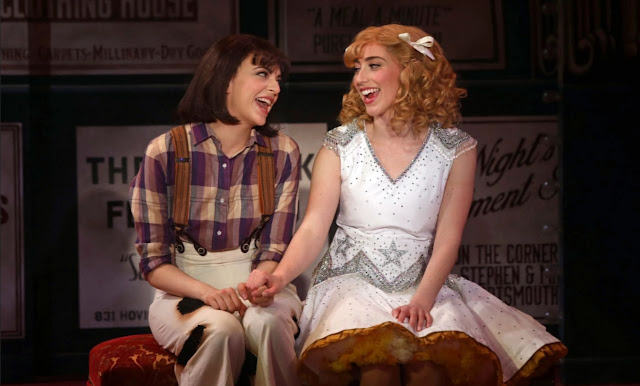 |
| McKinley Belcher III and Kevin Bacon in Rear Window at Connecticut's Hartford Stage. |
Alfred Hitchcock’s 1954 Rear Window is gripping and playful in equal parts. It puts us solidly on the side of a voyeur, “Jeff” Jefferies (Jimmy Stewart), who – amusing himself while laid up with a broken leg by peering at his neighbors across the courtyard through a pair of binoculars – determines that one of them (Raymond Burr) has murdered his wife and disposed of the body somehow, and nearly gets himself and his girlfriend Lisa (Grace Kelly) killed trying to uncover the evidence. Jeff and Lisa and Jeff’s part-time nurse Stella (Thelma Ritter) follow the lives of the people across the way, watching them as if they were characters in a play. The set design by Joseph McMillan Johnson and Hal Pereira is like an advent calendar revealing the honeymooners, the quarreling couple, the struggling songwriter, the perky, exercising young woman with a raft of suitors, and Jeff’s favorite, an increasingly desperate spinster whom he nicknames Miss Lonelyhearts. So it’s easy to see why a playwright might want to convert the ingenious John Michael Hayes script (out of a Cornell Woolrich short story) into an actual stage play.











